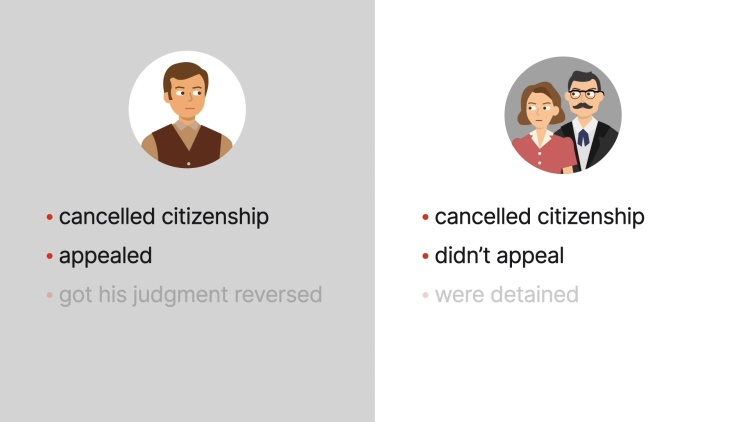Ackermann v. United States
United States Supreme Court
340 U.S. 193, 71 S.Ct. 209, 95 L.Ed. 207 (1950)

- Written by Sara Rhee, JD
Facts
Hans Ackermann (defendant) and his wife, Frieda, emigrated from Germany to the United States and were naturalized in 1938. Frieda’s brother, Max Keilbar, also emigrated from Germany and became naturalized in 1933. In 1942, the United States (plaintiff) sought to cancel the naturalization of Ackermann, Frieda, and Kielbar, alleging fraud. Their three cases were consolidated, and judgments canceling their naturalizations were entered against each of them on December 7, 1943. Keilbar appealed and prevailed. The Ackermanns did not appeal. Subsequently, Ackermann filed a motion in the United States District Court for the Western District of Texas, seeking to set aside the judgment canceling his naturalization. In his motion, Ackermann alleged that he had not appealed earlier, because he was unable to afford the $5,000.00 transcription and printing costs for the appeal. According to Ackermann, his lawyer at the time advised him that, in order to appeal, he would need to sell his home. Ackermann had also sought the advice of W.F. Kelley, the Assistant Commissioner for Alien Control at the Immigration and Naturalization Department. Kelley had advised Ackermann not to sell his home. Based on Kelley’s advice, Ackermann decided not to appeal. The district court denied Ackermann’s motion to set aside the judgment. The court of appeals affirmed. The United States Supreme Court granted certiorari.
Rule of Law
Issue
Holding and Reasoning (Minton, J.)
Dissent (Black, J.)
What to do next…
Here's why 907,000 law students have relied on our case briefs:
- Written by law professors and practitioners, not other law students. 47,100 briefs, keyed to 996 casebooks. Top-notch customer support.
- The right amount of information, includes the facts, issues, rule of law, holding and reasoning, and any concurrences and dissents.
- Access in your classes, works on your mobile and tablet. Massive library of related video lessons and high quality multiple-choice questions.
- Easy to use, uniform format for every case brief. Written in plain English, not in legalese. Our briefs summarize and simplify; they don’t just repeat the court’s language.





